Last week, my dad Roger died at the age of 66. He was diagnosed with Alzheimer’s disease in 2012 and had spent the last couple of years being cared for in a very kind and loving care home, but after a few weeks in hospital he managed to spend his final days in a bed in the middle of our family living room. On Wednesday evening I went to see him, and by Thursday morning he was gone. Since then, our whole family has been together and I feel very lucky – when I think of the possibilities of transatlantic flights or a lockdown hospital ward – that it ended this way.
I want to write something about his life, but I really don’t want to try and write some ‘definitive’ biography: firstly because there’s far too much to say, but also because there are so many different stories here. Like everyone, he was lots of different things to many people. So these are just my memories and impressions for right now. They shouldn’t take precedence over anyone else’s or all the many, many other memories which aren’t here.
My dad was born in the village of Coney Weston in Suffolk in 1954. He liked to point out that this was the year that wartime food rationing finally ended. His father was a bricklayer and a gentle father to Roger and his older brother Derek. My dad remembered one time when he was being naughty and his dad raised his hand to smack him in anger before catching himself, lowering it and walking away instead. Suffice to say, that gentleness was passed down. In the condolence cards which have been flooding our house since his death, some words keep coming back over and over again to describe my dad: witty, intelligent, kind. I would always include gentle in that list too.
I’m a city child, and although my dad came to love London as an adult there are important roots to him from the countryside which will always seem a little awesome and mysterious. He knew the names of trees and what the stars were called. Later, whenever we were staying in the countryside as a family, my dad would always take us on nighttime walks away from lights so we could see the stars which were usually hidden from us. They would have been his only light on the quiet, country roads which he walked alone at an age which would make most parents think twice today.
As a child in the 1960s, stars weren’t just for the sky but were all around too. An older generation had grown up on war stories but my dad wasn’t interested in toy soldiers: it was all about space rockets, Doctor Who and Daleks. I remember finding a book from this era on the solar system at my grandparents’ house which included speculative illustrations on the lush vegetation which ‘might exist’ on the surface of Venus. Venus, of course, turns out to be a hellscape – a parable of runaway greenhouse gases – and my dad never got his space stations or interstellar space travel either. But it fired his imagination. A few days ago we found a folder at home dedicated to the planet Volox which my dad put together with some school friends. It includes a giant map, shown below, along with several handwritten books including an English-Voloxian dictionary, a history spanning several millennia, an illustrated guide to the native animals and weekly Top Of The Pops music charts for Voloxian pop music. It’s really quite amazing.
These early years also set my dad as forever an internationalist at heart. I mean, honestly, if humanity is only a couple of years away from colonies on the moon and intergalactic trade treaties then should we really stay so attached to our nation states? My mum remembers a family holiday to Disney World in Florida, when I was about 5, which started with a very long queue at the airport to get through US Customs & Immigration. When we finally got to the end my dad – tired and fed-up – complained to the border officer that none of this would be necessary if we could only work things out and form one world government. It’s a wonder we were ever allowed into America after that.
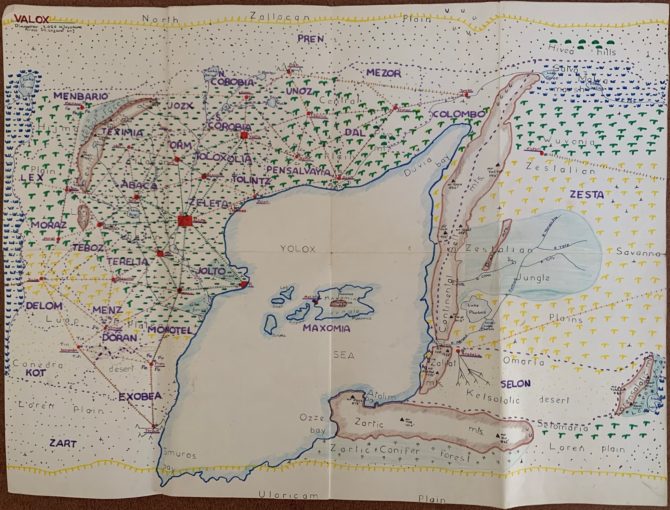
At the end of primary school, my dad ‘passed’ the 11+ exam and went to the nearest grammar school in Bury St. Edmunds. Today, grammar schools are much-mythologised by people who lack a real understanding of the momentus social, cultural and economic forces which were at work at the time. It was an era, possibly unique in our history, of rapid middle-class expansion – I say this only because my dad would hate for his memory to be misinterpreted, and he really loved the very different schools which his own kids attended.
With all that said, this was obviously a watershed moment in my dad’s life which would forever put him on a different path to his older brother, his parents and many, many past generations of farmers and farm labourers which he would later trace when he got into genealogy and family history. (If you like the black and white photos in this post, you can thank my dad for scanning, captioning and dating them.) My dad frequently told me the story of his own parents, who left school at 14, sitting him down and telling him that while of course they would always love and support him – and he would always have a home there – at age 11 he had already reached the limit of their practical help for navigating the world of education. He went on to study French, Latin and Maths at A-Level before obtaining a degree in French at the University of Durham. His degree included a year abroad which he sometimes hinted at (a little mysteriously, in my opinion) as a pivotal and important year of development in his life.
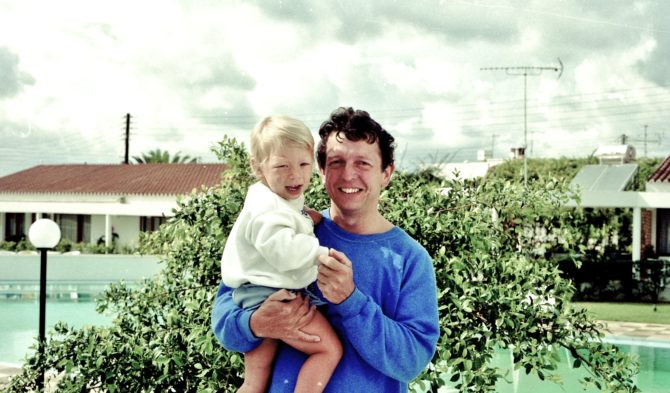
I’m not going to try and trace the next steps where my dad moved to London, fell in love with my mum, bought a flat in Willesden, got married and had three children. But I told his childhood story because it always explained so much to me about how and why my dad was the person he was. He wasn’t showy – in some ways, he was a little shy, and he got really nervous before parties – but his curiosity about the world always won out over fear. He really genuinely loved the idea of his own children going out and having their own adventures, which would be different to his own, and then bringing back their own stories to the dinner table to share. This was part of what made him so popular with so many people – he was great to talk to, because he was more interested in hearing from other people’s lives than trying to impress them. And, overall, even without the space rockets, I think he was continually surprised and delighted by the many good things in his life and the world around him. One of his most famous catchphrases was “Life is good, isn’t it?” – usually after a pint of beer in a pub or on holiday, and always delivered in a tone of happy realisation, as if one shouldn’t necessarily expect life to be good but – by good fortune – it was.
He was also a fount of knowledge about so many things, and a total thumb in the face to people who try and impose an Arts vs. Science divide onto our lives. He loved classical music and linguistics and Proust and Nature magazine. He also loved Star Trek – particularly The Next Generation and Deep Space Nine which we always watched together – but he was a bit cold on the Original Series, and that was partly because he didn’t like the dichotomy of Spock vs. McCoy as ‘logic vs. emotion’. Unlike me I don’t think my dad read much of Scottish philosopher David Hume (his favourite was Jeremy Bentham) but I always think of my dad when I read Hume’s most famous line:
Reason is, and ought only to be the slave of the passions, and can never pretend to any other office than to serve and obey them.
My dad respected reason, and thought reason made the world a better place. But he also taught me something which is totally foundational to the way I think about the world, which is that human beings are an animal species – clever primates – and ultimately what’s important to people is important because it’s important to people and you don’t need to go looking for a better reason than that.
A tangent about reason and parenting: I distinctly remember being quite young and doing something stupid (like breaking a glass) and my dad was upset because I couldn’t give any good answer to his question: why? To say “I dunno, I just did” was aggravating – it was “irrational”, to use his exact word – because it made no sense, and my dad definitely did not believe that you should patronise children by treating them as inherently unreasonable beings.
He was way ahead of his time in his freelance working arrangements, going into the offices of his biggest client two days a week but working from home for the rest of the week. (This also made him an early adopter of dial-up internet – one of my earliest internet memories is watching images from the surface of Mars load very very slowly from top to bottom in Compuserve.) This routine meant we had ‘mummy days’ and ‘daddy days’ when our respective parents picked us up from school, and sometimes dad worked late into the night to make it all work. If in the middle of all this we were being brats, and he lost his temper, he then felt bad in the same way he would regret getting angry with another adult. I remember he would come up to my room later in the evening, apologise and explain that he had lost his temper because he was tired, even when I’m very sure it would have been my own misbehaviour at fault.
As a result I grew up thinking it was totally normal for parents to apologise to their children, just like I thought it was absolutely unimaginable (and still do) for a parent to sneak through an older child’s personal things or open their post. This was my dad’s liberal, individualist streak and he never wavered from it. Amusingly, he also thought grounding children was nonsense on the basis that it was silly to trap yourself indoors with someone who was being unpleasant. Once, when Tash and I had been bickering for days, he sent us outside to walk round the block and resolve our differences before coming back again. It worked much better.
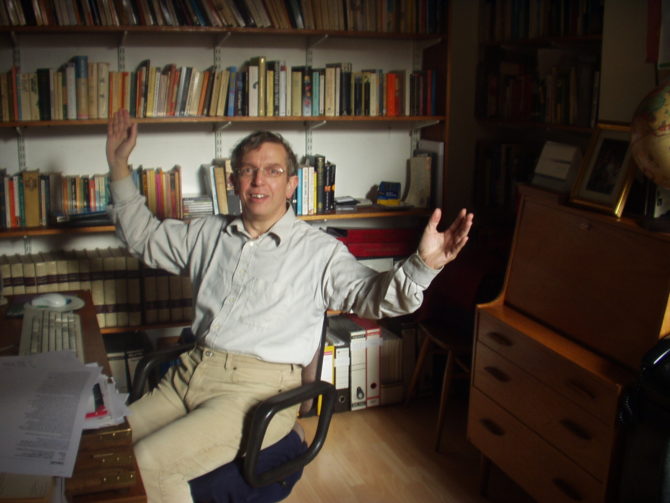
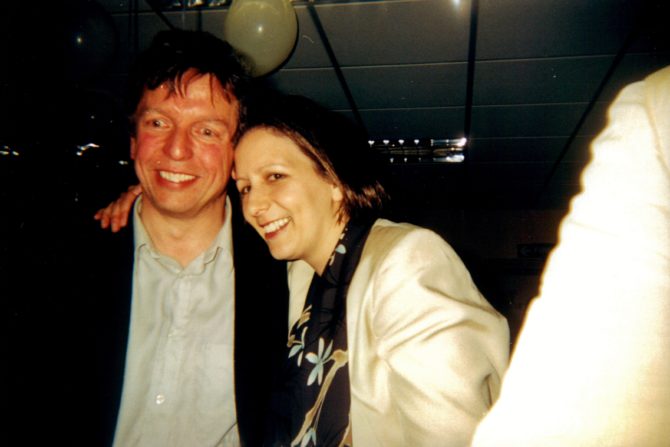
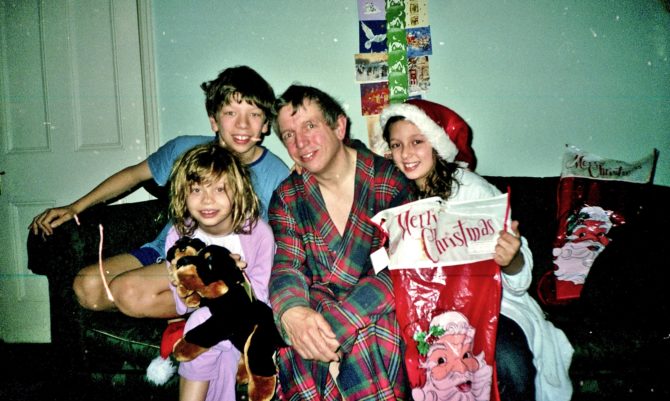
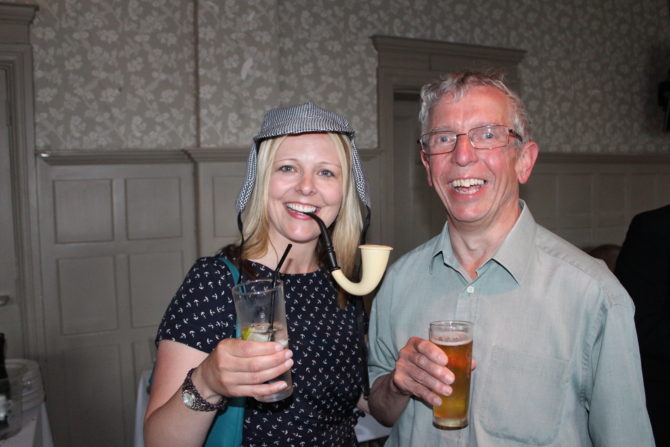
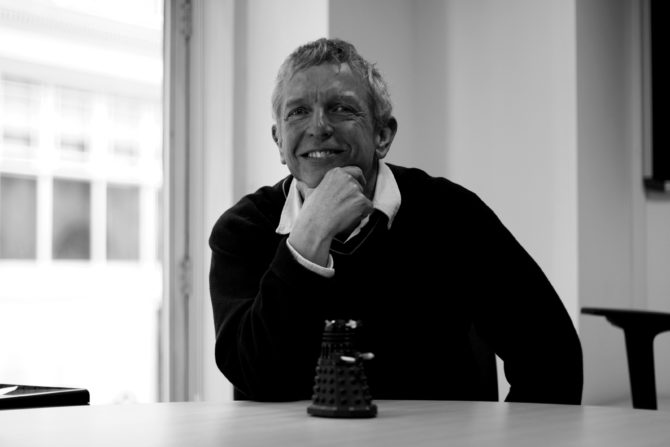
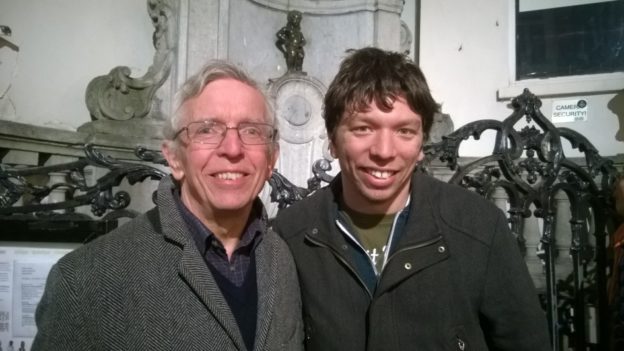
As I feared, I have too many memories to cram into one short post. Dad did the weekly shop with us after school, and he used to pacify/reward us by buying us each a jam doughnut from Sainsbury’s for the ride home. He made really great scrambled eggs. He was exuberantly cheerful whenever he came home drunk and red-faced from drinks with friends or colleagues. He once accidentally covered the three of us with the contents of an exploding ketchup bottle. And when I was young he used to make up stories about two rabbits, Rag and Tag, who lived in a warren and a state of semi-permanent war against the weasels. I recorded some of these stories on a cassette tape and I still have them today. At some point, my dad loses track of whether the magician rabbit, Narla, was male or female. The following is a word-for-word transcript of how he recovers:
“…and Narla waved his magic wand… her magic wand… sometimes Narla is a male and sometimes a female, because he changes from one sex to another. I think he might have been a male in this story. But he goes from being a male rabbit to a female rabbit, because he’s both. And the rocks tumbled down…”
The whole thing is casual, and unplanned, and clearly the result of making up a story on the spot. But he just goes with it, because why not? The world is big and full of life of every kind, and life is good. An important corollary is that life is also finite. Of course I wish my dad had lived longer. So would he. But not at the expense of living a lesser life, because he really was happy with the one he had. And he certainly never wanted to live forever. He told me, from a very young age, that asking about life-after-death was like asking about your existence before you were born. If you’re comfortable with your own absence in the past then there’s no need to be afraid about not existing in the future.
And enjoy the adventure.
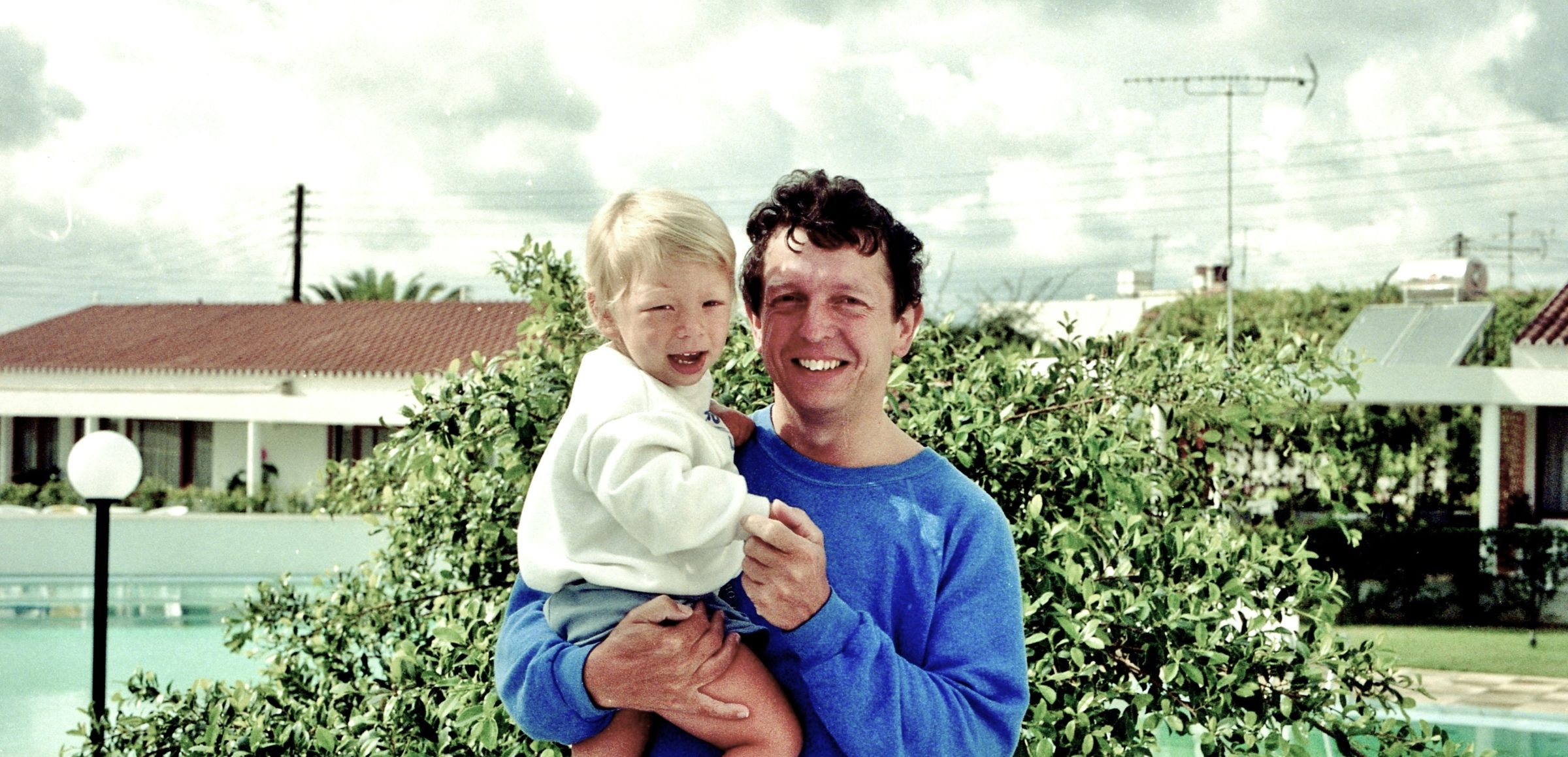
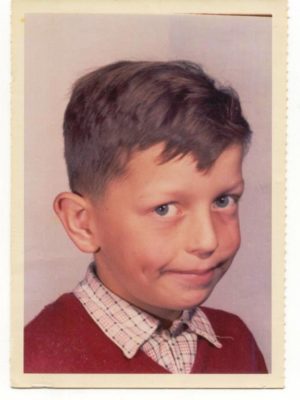
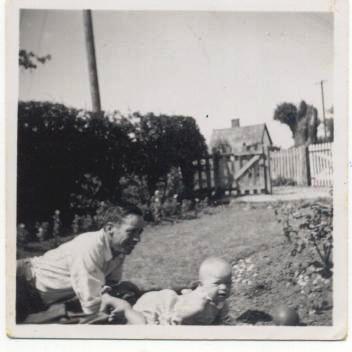
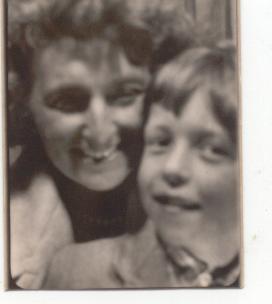
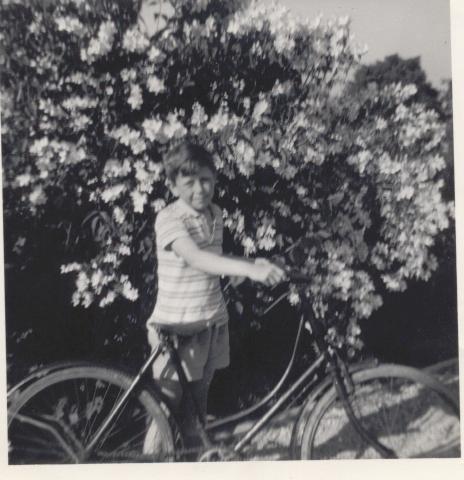
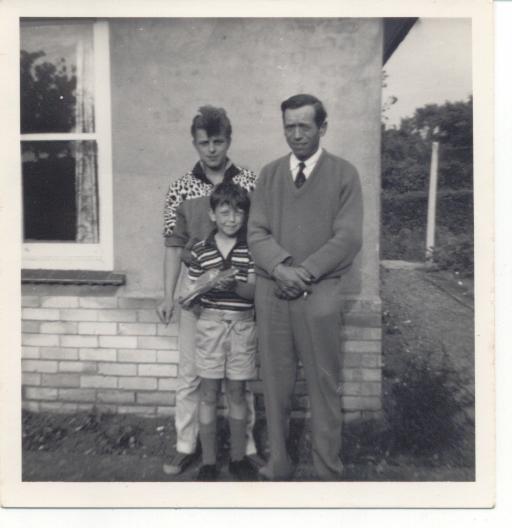

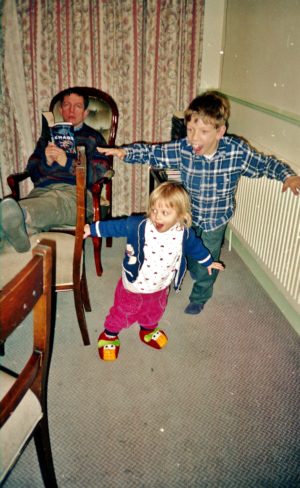
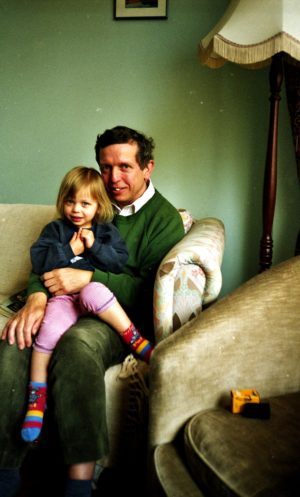

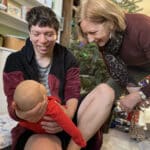
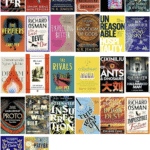
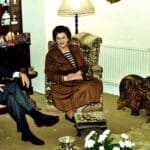
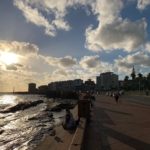
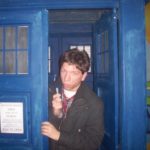
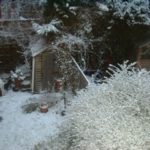

Hi Dom! I’m so sorry about your dad. Please accept my condolences.
Wow! This post is particularly awesome. Your love and respect for him comes shining through.
Dom – What a beautiful, loving tribute and a way to bring your father into the lives of those how hardly knew him. It truly sounds like he made “life very good” for many. Our love continues to be with all of you.
Beth & Stu
Dom, this is a really beautiful piece of writing and a wonderful tribute to the gentle, clever and imaginative soul I will remember your dad as. Sending love to you and the whole family. xx
Ron and I never had the pleasure or the honour of knowing YOUR DAD, however after reading the blog we somehow now know why YOU are such a special PERSON
Please accept our deepest condolences
RON and JEFF
Hi Dom, I have read this several times now because it is such a beautiful piece of writing. I have such fond memories of your dad’s calm, thoughtful, gentle (you’re absolutely right, gentle is the exact word to describe him) presence at your house and at parties when we were young. He was one of those rare grown-ups who treats children as seriously as adults — while retaining the sense of youthful imagination and playfulness that so many of us lose as we grow up. He was a truly wonderful man and this is a truly wonderful tribute. Sending love to your whole family x
Beautifully written. You are all a huge credit to a very lovely man. Susan
Dom, this is beautiful. Heartfelt, poignant, all that “stuff.” Just beautiful.
Oh! Another thing: are there links to any of his writings? I’d love to read them.
Dom, so touching and inspirational. A truly good and gentle soul. I only wish I had known of his love for ST, the next Gen. Would have made for even more conversations. Hope to see you soon.
Dom, first I cried at seeing the beautiful photos of Roger from child to adult and reading your great portrait of him then I cried laughing at the holiday stone hunt. Will be in front of the screen next Friday.
Dom, a wonderful tribute to a lovely man.
Dom,
Thank you for sharing your moving tribute to you Dad. I wish that I could have spent more time with your Dad, but living in the US meant making the most of our visits. And seeing your Dad (and the rest of the family) was always one of the highlights of my trips. You captured him perfectly, especially someone who was always interested in the other person. I no sooner came through the door than he had questions for and about me. I miss him and there will be a certain emptiness on my next visit when he isn’t there. Much love to you, your sisters, and your mother.
Dear Dom, this is a beautiful and heartfelt tribute to your Dad. Wonderful stories and pictures of you all and lovely to learn more about your Dad and his upbringing, such a cool map and clear philosophy about life. Lots of love from the Arthurs.
Brilliant Dom, love these thoughts and reminiscences. And delighted to know that “life is good” was for everyone!
Oh Dom, what a beautiful tribute. Thinking of you!